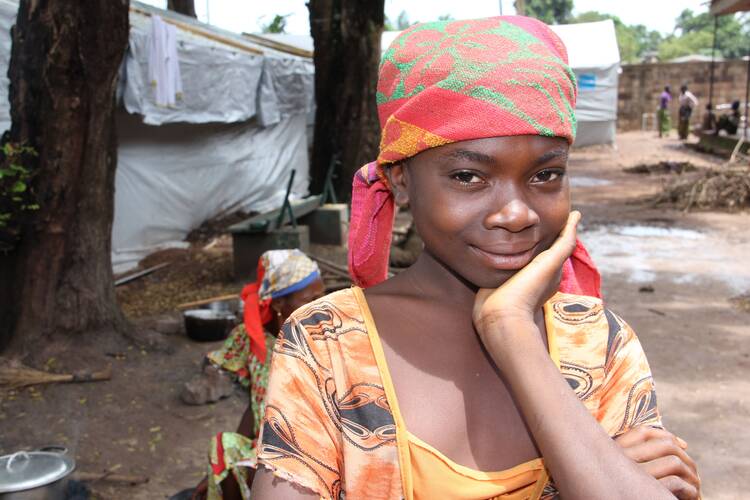An archbishop in Central African Republic compared citizens of his country to the people of Israel wandering in the desert and urged them to use the pope's planned autumn visit to escape from their "prolonged crisis."
"God wanted his people to pass through that dreadful terrain so he could bring them to the land of milk and honey—the harsh ordeal was necessary for Israel to gain the firmness of a people," said Archbishop Dieudonne Nzapalainga, president of the bishops' conference, in a Lenten pastoral letter.
"So the Lord is also leading us through the desert, like Israel, to make us a new people and help us uncover the fragility, poverty and powerlessness which caused the crisis afflicting our country," he said.
The archbishop said he hoped the Central African Republic's two-year civil war would mark "a passage from servitude to freedom" and enable its inhabitants to shake off the evil influence of "princes, powers, dominators of the world of shadows."
"Recent events here seem to have plunged us into a sort of spiritual lethargy, as if living in mediocrity with a dead faith. People kill, steal, rape, seize and take hostages without any mass reaction, as if these things were normal. The time has come, with God's grace, to wake up," Archbishop Nzapalainga said.
The letter was sent to Catholic churches in late February as the United Nations reported a new increase in refugees, with 50,000 fleeing their homes since Jan. 1 to escape continued fighting between rival factions.
After the rebel Seleka alliance ousted President Francois Bozize in March 2013, it suspended the constitution. The country descended into ethnic and sectarian violence, with thousands of people fleeing their homes. The United Nations has warned there was a high risk of genocide.
In the letter, the archbishop said unity could be rebuilt through a new Forum de Bangui, convened by the country's transitional parliament, which is expected to bring together all armed factions and political groups this spring.
"This basic consultation will give Central Africans an opportunity to talk and free themselves from the spirit of vengeance, jealousy, hatred and rancor," Archbishop Nzapalainga added. "The enormous problems of misery and insecurity are driving many of us to discouragement and defeatism. But we cannot succumb to fatalism."
Archbishop Nzapalainga said Christians had stopped "acting as Christians" during the conflict, adding that true conversion would require "sharing wealth and power" and showing an interest in the "problems, sufferings and injustices" of others.
He added that Pope Francis' planned visit to Bangui and nearby Uganda later this year would be a "sign of divine goodness."
"As Christ's ambassador, the pope will mediate a divine grace, which produces many fruits here if we collaborate generously with it," the archbishop said.
The secretary-general of the bishops' conference, Msgr. Cyriaque Gbate Doumalo, told Catholic News Service Feb. 25 that a date and itinerary for the pope's visit would be announced during the Central African bishops' ad limina visit to Rome in May.
Meanwhile, in a Feb. 25 statement, Salesians said there was still "no rule of law" in much of the Central African Republic, where police and security forces remained "nonexistent."
It added that, despite the insecurity, the Salesians had maintained their educational activities to prevent local children falling into the hands of armed groups, but said the order's community in Bangui had "suffered threats, theft and violence" and was aware its members were "risking their lives."
See America's previous coverage of the crisis in Central African Republic








